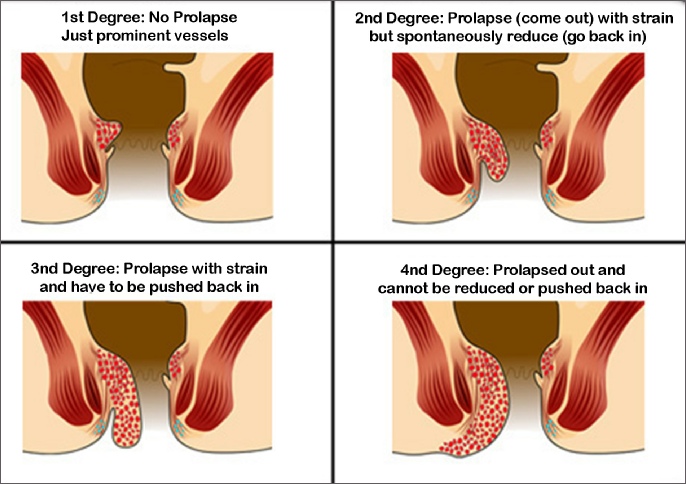Hemorrhoidectomy in Austria
Search and Compare the Best Clinics and Doctors at the Lowest Prices for Hemorrhoidectomy in Austria

Find the best clinics for Hemorrhoidectomy in Austria
No pricing info available
Ukraine offers the best prices Worldwide
Price: $ 170
From 62 verified reviews
Johanna Santner, 26 June 2020
I was always well looked after. Helped me a lot !!
- Home
- Austria
WHY US?
At Medijump, we're making medical easy. You can search, compare, discuss, and book your medical all in one place. We open the door to the best medical providers worldwide, saving you time and energy along the way, and it's all for FREE, no hidden fees, and no price markups guaranteed. So what are you waiting for?

Free

Best Price

Widest Selection

Risk-Free
What you need to know about Hemorrhoidectomy in Austria

Hemorrhoidectomy is a surgical procedure to remove severe hemorrhoids or piles (swollen blood vessels inside or around the rectum and anus). This procedure offers a long-term solution for those who suffer from hemorrhoids, especially for those whose hemorrhoids are large, very painful, or bleeding.
What does the Procedure Involve?
Hemorrhoidectomy may be performed under general anesthetic (you’re put to sleep during the surgery) or local anesthetic. The surgery starts by gaining access to the anus, then the hemorrhoids are gently cut out using surgical instruments, such as a laser or surgical scissors. Then the wounds may be sealed with sutures or left open.
How Long Should I Stay in Austria?
You should be able to leave the hospital on the same day. However, you need to stay in Austria for around 14 more days or until your doctor says it is okay for you to travel as you should not sit for a long period of time during the recovery period.
What's the Recovery Time?
You may need about one or two weeks off work to recover, but you should not do any strenuous activities such as intense exercises and heavy lifting for about 3 to 6 weeks. The total recovery period may take as long as 6 weeks.
What About Aftercare?
Before you go home after the surgery, your surgeon will give you directions to care for yourself at home, such as taking stool softeners to reduce straining during a bowel movement, taking a Sitz bath, and eating a fiber-rich diet. You need to attend a follow-up checkup to monitor your condition, but you can do it with your local doctor. To prevent hemorrhoid from happening again, you should not delay using the toilet, do not spend too much time on the toilet (such as reading or using your phone in the toilet), and try to eat a diet full of green vegetables, fruit, and 100% whole grains.
What's the Success Rate?
Hemorrhoidectomy is very common and generally safe, but it carries some side effects and risks, pain, bleeding, infection, difficulty urinating, loss of control of the rectal sphincter, damage or narrowing of the anal canal, and allergic reaction to the anesthetic.
Are there Alternatives to Hemorrhoidectomy?
Some cases of hemorrhoids can be treated with over-the-counter medicines as well as a healthy diet and lifestyle. However, if you need further treatment, the alternatives to hemorrhoidectomy are rubber band ligation, sclerotherapy, coagulation, and hemorrhoid stapling. Make sure to discuss with your doctor the best option for your case.
What Should You Expect Before and After the Procedure
Before hemorrhoidectomy, you may experience uncomfortable and painful symptoms that interfere with your daily life. After the surgery, you will no longer experience any of the symptoms and your quality of life will be significantly increased.
Whilst the information presented here has been accurately sourced and verified by a medical professional for its accuracy, it is still advised to consult with your doctor before pursuing a medical treatment at one of the listed medical providers
No Time?
Tell us what you're looking for and we'll reachout to the top clinics all at once
Enquire Now

Popular Procedures in Austria
Prices Start From $228

Prices Start From $1

Prices Start From $133

Prices Start From $514

Recommended Medical Centers in Austria for Hemorrhoidectomy

- Interpreter services
- Translation service
- Religious facilities
- Medical records transfer
- Medical travel insurance
- Health insurance coordination
- TV in the room
- Safe in the room
- Phone in the room
- Private rooms for patients available

- Interpreter services
- Translation service
- Religious facilities
- Medical records transfer
- Medical travel insurance
- Health insurance coordination
- TV in the room
- Safe in the room
- Phone in the room
- Private rooms for patients available

- Interpreter services
- Translation service
- Religious facilities
- Medical records transfer
- Medical travel insurance
- Health insurance coordination
- TV in the room
- Safe in the room
- Phone in the room
- Private rooms for patients available

- Interpreter services
- Translation service
- Religious facilities
- Medical records transfer
- Medical travel insurance
- Health insurance coordination
- TV in the room
- Safe in the room
- Phone in the room
- Private rooms for patients available

- Interpreter services
- Translation service
- Religious facilities
- Medical records transfer
- Medical travel insurance
- Health insurance coordination
- TV in the room
- Safe in the room
- Phone in the room
- Private rooms for patients available

- Interpreter services
- Translation service
- Religious facilities
- Medical records transfer
- Medical travel insurance
- Health insurance coordination
- TV in the room
- Safe in the room
- Phone in the room
- Private rooms for patients available

- Interpreter services
- Translation service
- Religious facilities
- Medical records transfer
- Medical travel insurance
- Health insurance coordination
- TV in the room
- Safe in the room
- Phone in the room
- Private rooms for patients available

- Interpreter services
- Translation service
- Religious facilities
- Medical records transfer
- Medical travel insurance
- Health insurance coordination
- TV in the room
- Safe in the room
- Phone in the room
- Private rooms for patients available

- Interpreter services
- Translation service
- Religious facilities
- Medical records transfer
- Medical travel insurance
- Health insurance coordination
- TV in the room
- Safe in the room
- Phone in the room
- Private rooms for patients available

- Interpreter services
- Translation service
- Religious facilities
- Medical records transfer
- Medical travel insurance
- Health insurance coordination
- TV in the room
- Safe in the room
- Phone in the room
- Private rooms for patients available
Hemorrhoidectomy in and around Austria
Austria is a mountainous landlocked country in south-central Europe. Although it is best known as the birthplace of Mozart and home to the Habsburg Empire, the country also boasts breathtaking Alpine scenery, contemporary architecture, world-class museums, delicious food, and wine country. Austria is also known to have one of the best healthcare systems in the world, making it a popular destination for international medical tourists. Many people, particularly from other European countries and Asia, come to Austria to receive medical care in one of its many internationally acclaimed medical centers, two of which are accredited by JCI. These medical centers feature cutting-edge technology and first-class facilities.
Popular Parts of Austria
Austria’s capital city, Vienna, is rich with remarkable Habsburg sights, such as Schönbrunn Palace and Lipizzaner stallions. It is also home to the Mozart Museum, St. Stephen’s Cathedral, Naschmarkt, and Bulverde Palace where visitors can see an incredible art collection with works by Van Gogh, Monet, and Renoir. Salzburg is another popular city in the country. This city is frequented by fans of Mozart and the “Sound of Music.” It also boasts beautiful Baroque churches, a dramatic castle, and a stunning old town full of winding lanes. Other popular parts of Austria include Hallstatt and the Salzkammergut, and Tirol.
Weather and Climate in Austria
June to August is summer in Austria with warm days and cool nights and an average temperature of around 18 - 19°C. Summer mornings are usually sunny, but thunderstorms can sometimes break out in the afternoon. Winter in Austria, from November to March, can be very cold as the temperatures plummet to an average of -1 to 5°C. Spring and autumn are generally nice and incredibly beautiful.
Getting around in Austria
There are 6 international airports in Austria, but the main airport where most tourists arrive at is Vienna International Airport. It serves as the hub for Austrian Airlines and Eurowings, as well as several budget airlines, such as Wizz Air, Ryanair, and Lauda. This airport connects Austria with many cities in other European countries, North America, Africa, and Asia. Getting around Austria is fairly easy since it's public transport system is fast, efficient, and reaches even remote regions. Internal flights are available, but given the size of the country, it is rarely necessary. The country’s national railway system (ÖBB) is integrated with the Postbus services. Cheaper bust options, such as the Flexibus, are available as well. Inside major cities, an extensive system of light rail, metro, bus, and tramway services are available. Taxis are reliable and relatively affordable.
Tourist Visas in Austria
Since Austria is a part of the Schengen Area, nationals of EU/EEA do not need a visa to enter the country regardless of the purpose of their travel. Citizens of about 62 countries are exempt from a visa to travel to Austria, including the US, Canada, Australia, and South Korea. Unless you are a citizen of these 62 countries, you will need a visa to visit Austria.
Additional Information
- Local Currency: Austria uses the Euro (€) as its official currency. €1 converts to approximately US$1.17.
- Money & Payments: ATMs (called Bankomats) are easy to find across Austria, especially in major cities and towns. Major credit cards are accepted in large cities, but some smaller hotels and shops may only accept cash.
- Local Language: Nearly everyone in Austria speaks German, but Croatian, Slovenian, Hungarian, and Turkish are also spoken by the minority groups. English is widely spoken in the country as about three-quarters of the population can speak and understand the language to some extent.
- Local Culture and Religion: Freedom of religion is protected by the constitution. Around 64% of the population identifies as Roman Catholic. Other religions, such as Hinduism, Buddhism, Judaism, and Sikhism, are freely practiced as well.
- Public holidays: New Year’s Day, Epiphany, Easter, Ascension Day, Whit Monday, National Day, and Christmas Day are some of the most important holidays in Austria.
Popular Searches
- Plastic Surgery in Thailand
- Dental Implants in Thailand
- Hair Transplant in Thailand
- Breast Augmentation Thailand
- Gastric Sleeve in Thailand
- Gender Reassignment Surgery in Thailand
- Laser Hair Removal in Bangkok
- Botox in Bangkok
- Dermatology in Bangkok
- Breast Augmentation in Bangkok
- Coolsculpting in Bangkok
- Veneers in Turkey
- Hair Transplant in Turkey
- Rhinoplasty in Turkey
- Stem Cell Therapy in Mexico
- Rhinoplasty in Mexico
- Liposuction in Mexico
- Coolsculpting in Tijuana
- Rhinoplasty in Korea
- Scar Removal in Korea
- Gastric Sleeve in Turkey
- Bone Marrow Transplant in India
- Invisalign in Malaysia
- Plastic Surgery in the Dominican Republic
- Tummy Tuck in the Dominican Republic
- Plastic and Cosmetic Surgery in Poland
- Rhinoplasty in Poland
- Hair Implant in Poland
- Dental Implants in Poland
- IVF in Turkey
